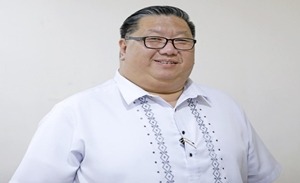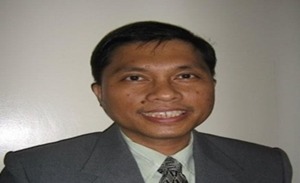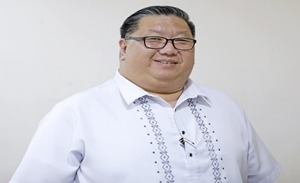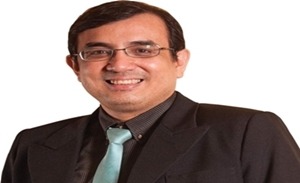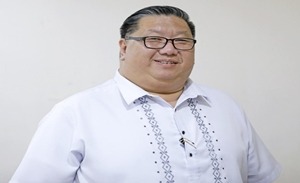FRESH VIEWPOINTS: A NEW PERSPECTIVE
By Brian James Lu
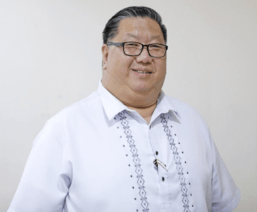
The topic of free speech regulations in the Philippines has been a hot issue recently, with the three committees (Tricom) of the House of Representatives conducting a series of hearings. The Congress hearings were looking into the regulation of online content creation to curb the spread of disinformation and misinformation on social media. However, concerns have been raised about the constitutionality of such measures, as free speech and expression are rights guaranteed under the 1987 Constitution.
The weaponization of social media to mislead Filipinos alarms me. Once hailed as a powerful tool for democratizing information and empowering citizens, social media has increasingly taken on a double-edged role in the Philippines. The systematic spread of disinformation has been made possible by the rise of coordinated networks of fake accounts, troll farms, and algorithm-driven echo chambers. This is not merely about harmless misinformation — it is a deliberate effort to distort facts, manipulate public opinion, and sow division. Politically motivated interest groups, both domestic and foreign, have exploited the vulnerabilities of the online landscape to rewrite narratives, discredit legitimate voices, and even influence election outcomes. The erosion of truth on these platforms poses a serious threat to democracy, public trust, and civic engagement.
With 90.8 million active user identities on social media — nearly the entire population— the Philippines stands as one of the most deeply connected nations in the digital world. However, this vast digital engagement also exposes a large portion of the population to disinformation campaigns. These campaigns often originate from well-funded, politically aligned entities seeking to shape public perception for their ends. Many users lack the digital literacy skills needed to critically assess the information they encounter online, making them straightforward targets for manipulation. The rapid and viral nature of social media further amplifies these falsehoods, allowing misleading narratives to spread far faster than fact-based corrections can keep up. As a result, the country faces a growing challenge in safeguarding the integrity of public discourse and ensuring that citizens make informed decisions based on truth rather than propaganda.
The recent Tricom hearings have shed light on a troubling trend: the role of certain social media vloggers in spreading misinformation and engaging in black propaganda. Beyond the deliberate distortion of facts, what is equally disturbing is the manner in which these individuals conduct themselves online. Many exhibit a blatant lack of courtesy and respect, often resorting to personal attacks, name-calling, and inflammatory language. Such behavior undermines the credibility of public discourse and sets a poor example for the millions of Filipinos —especially the youth — who consume their content.
Social media personalities hold significant influence in today’s digital age, and with that influence comes the responsibility to uphold ethical standards and promote respectful dialogue. Unfortunately, some vloggers have weaponized their platforms to do the opposite.
Another glaring concern is the frequent use of vulgar language and expletives in these vlogs. Instead of engaging in rational discussion or constructive criticism, some vloggers resort to shouting profanities and using crude, offensive language to provoke or humiliate others. This kind of content pollutes the online space and reflects poorly on the values we hope to uphold as a society. The normalization of such behavior can desensitize viewers to verbal aggression, potentially encouraging a culture of intolerance and disrespect.
Filipino culture is deeply rooted in values of respect, decency, and civility — qualities that are expected to be reflected in both private and public life. The aggressive and often profane behavior exhibited by some vloggers starkly contradicts these cultural norms. While freedom of expression is a right, it must be exercised responsibly and with sensitivity to the values that bind our communities together. Digital influencers must be held accountable for their content and how they interact with the public. If left unchecked, this erosion of civility online could spill over into real-world interactions, further deepening divisions and undermining social cohesion.
During one of the hearings conducted by the Tricom, two vloggers issued apologies to House lawmakers after being presented with evidence that contradicted their earlier claims. One of the vloggers had asserted that the extrajudicial killings (EJKs) linked to the Duterte administration’s war on drugs were merely a “hoax.”
There were also allegations that critics of former president Rodrigo Duterte were being funded by drug cartels, terrorist groups, and corrupt politicians. The proceedings thoroughly debunked these baseless accusations, amplified through social media, prompting the vloggers to retract their statements. The Tricom cited three vloggers for contempt and ordered their detention after they repeatedly evaded the inquiry.
While it remains uncertain whether the government will move to regulate social media content, there is a growing consensus that any such regulation could face significant legal challenges and may be deemed unconstitutional. This situation highlights the delicate balance that must be struck between combating disinformation and safeguarding the fundamental right to free speech. Addressing the harms caused by online falsehoods is necessary, but it must be done in a way that upholds democratic principles and respects constitutional protections.
The role of social media platforms in moderating content also raised questions. One legislator highlighted the absence of laws regulating these platforms, noting, for example, that Meta — the parent company of Facebook and Instagram — does not have a headquarters in the Philippines. It was further pointed out that there are no existing regulations that define the duties and responsibilities of social media platforms toward content creators and advertisers. This regulatory gap raises concerns about accountability, particularly in the context of disinformation and the monetization of harmful content.
The Tricom has yet to conclude its hearings, but there is hope that these proceedings will lead to concrete action in addressing the widespread proliferation of disinformation and misinformation. The unchecked spread of false narratives has created a kind of disinformation anarchy —where facts are distorted, trust in institutions is eroded, and public discourse is poisoned.

